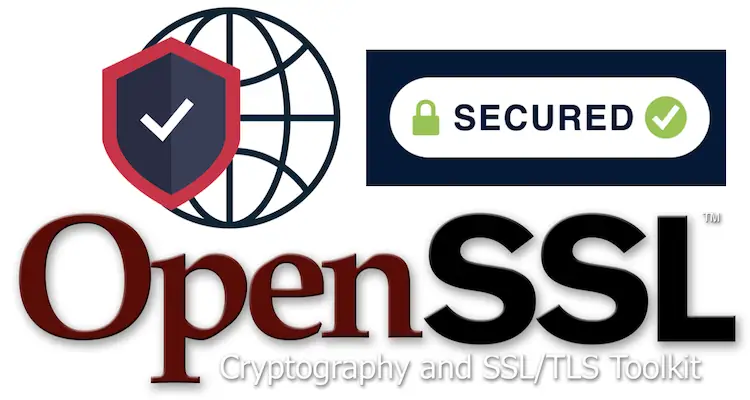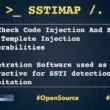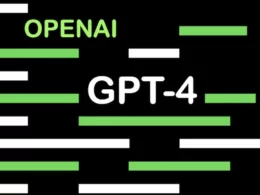OpenSSL has fixed a high-severity bug that could lead to malicious attacks on users, and patching several security flaws.
OpenSSL is a robust, commercial-grade, full-featured Open Source Toolkit for the Transport Layer Security (TLS) protocol formerly known as the Secure Sockets Layer (SSL) protocol. The protocol implementation is based on a full-strength general purpose cryptographic library, which can also be used stand-alone.
OpenSSL secures communication over computer networks against eavesdropping and identifying other. There are many Internet servers that use SSL, including most HTTPS websites.
Following CVE’s Fixed in OpenSSL 3.0.8 (Affected since 3.0.0) ne high and seven moderate severity fixes
- CVE-2023-0401 – NULL dereference during PKCS7 data verification
A NULL pointer can be dereferenced when signatures are being verified on PKCS7 signed or signedAndEnveloped data. In case the hash algorithm used for the signature is known to the OpenSSL library but the implementation of the hash algorithm is not available the digest initialization will fail. There is a missing check for the return value from the initialization function which later leads to invalid usage of the digest API most likely leading to a crash.
- CVE-2023-0286 – X.400 address type confusion in X.509 GeneralName
this vulnerability may allow an attacker to pass arbitrary pointers to a memcmp call, enabling them to read memory contents or enact a denial of service. In most cases, the attack requires the attacker to provide both the certificate chain and CRL, neither of which need to have a valid signature.
- CVE-2023-0217 – NULL dereference validating DSA public key
An invalid pointer dereference on read can be triggered when an application tries to check a malformed DSA public key by the EVP_PKEY_public_check() function. This will most likely lead to an application crash. This function can be called on public keys supplied from untrusted sources which could allow an attacker to cause a denial of service attack.
- CVE-2023-0216 – Invalid pointer dereference in d2i_PKCS7 functions
An invalid pointer dereference on read can be triggered when an application tries to load malformed PKCS7 data with the d2i_PKCS7(), d2i_PKCS7_bio() or d2i_PKCS7_fp() functions. The result of the dereference is an application crash which could lead to a denial of service attack. The TLS implementation in OpenSSL does not call this function however third party applications might call these functions on untrusted data.
- CVE-2023-0215 – Use-after-free following BIO_new_NDEF
It is primarily used internally to OpenSSL to support the SMIME, CMS and PKCS7 streaming capabilities, but may also be called directly by end user applications. The function receives a BIO from the caller, prepends a new BIO_f_asn1 filter BIO onto the front of it to form a BIO chain, and then returns the new head of the BIO chain to the caller.
- CVE-2022-4450 – Double free after calling PEM_read_bio_ex
If the function succeeds then the “name_out”, “header” and “data” arguments are populated with pointers to buffers containing the relevant decoded data. The caller is responsible for freeing those buffers. It is possible to construct a PEM file that results in 0 bytes of payload data.
- CVE-2022-4304 – Timing Oracle in RSA Decryption
To achieve a successful decryption an attacker would have to be able to send a very large number of trial messages for decryption. The vulnerability affects all RSA padding modes: PKCS#1 v1.5, RSA-OEAP and RSASVE. For example, in a TLS connection, RSA is commonly used by a client to send an encrypted pre-master secret to the server. An attacker that had observed a genuine connection between a client and a server could use this flaw to send trial messages to the server and record the time taken to process them. After a sufficiently large number of messages the attacker could recover the pre-master secret used for the original connection and thus be able to decrypt the application data sent over that connection.
- CVE-2022-4203 – X.509 Name Constraints Read Buffer Overflow
A read buffer overrun can be triggered in X.509 certificate verification, specifically in name constraint checking. Note that this occurs after certificate chain signature verification and requires either a CA to have signed the malicious certificate or for the application to continue certificate verification despite failure to construct a path to a trusted issuer. The read buffer overrun might result in a crash which could lead to a denial of service attack. In theory it could also result in the disclosure of private memory contents (such as private keys, or sensitive plaintext) although we are not aware of any working exploit leading to memory contents disclosure as of the time of release of this advisory. In a TLS client, this can be triggered by connecting to a malicious server. In a TLS server, this can be triggered if the server requests client authentication and a malicious client connects.
You can read Full advisory here.











